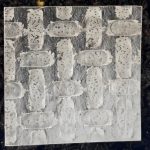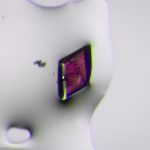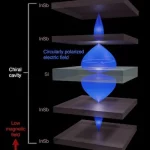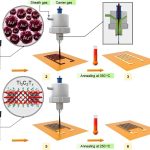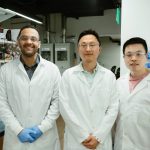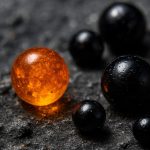Scientists build eco-friendly robots out of rice paper—and they disappear in just 32 days
Scientists from the University of Bristol have found an exciting new use for a surprising material: rice paper.
Yes, the same kind used to wrap...
Scientists discover crystals can twist light in surprising ways
New crystal discovery could transform screens and sensors
For years, scientists believed they had a clear understanding of how crystals interact with light.
But a new...
Scientists use “quantum vacuum” to create a new kind of material
Scientists at Rice University have developed a groundbreaking way to control the behavior of materials by reshaping the "vacuum" around them.
While we often think...
This new “sweating” paint keeps buildings cool and slashes energy bills
A new type of paint could change the way we keep our homes and cities cool.
Called CCP-30, this cement-based paint doesn’t just reflect sunlight—it...
How bacteria-powered materials capture carbon from the air
Scientists at ETH Zurich have developed a new type of living material that can pull carbon dioxide (CO₂) from the air using bacteria.
This futuristic...
Spider-inspired nanofibers could make carbon fiber stronger, tougher, and cheaper
Scientists at the U.S. Department of Energy’s Oak Ridge National Laboratory (ORNL) have developed a new way to make carbon fiber materials even stronger...
Goodbye batteries? Tiny printed supercapacitors are here
Imagine tiny energy storage devices printed directly onto flexible materials like plastic film.
Thanks to a new breakthrough from researchers at Boise State University, this...
New imaging breakthrough could supercharge future batteries
Scientists at UCLA have developed a powerful new imaging method that could help solve one of the biggest problems holding back next-generation batteries.
These batteries,...
Turning carbon into fuel just got 50 times more efficient
Scientists at Rice University have discovered a surprisingly simple way to make carbon dioxide–to–fuel technology last much longer and work more reliably—by bubbling the...
Why the moon glitters with ancient glass beads
When Apollo astronauts walked on the moon in the 1970s, they made all kinds of unexpected discoveries.
One of the most surprising was the sight...

